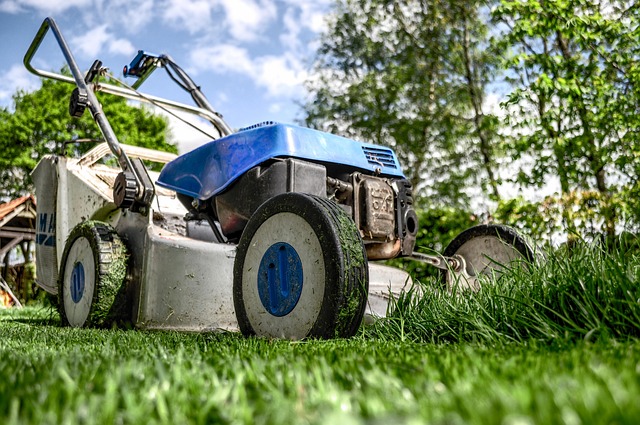Leaf collection and mulching are essential, eco-friendly practices for year-round yard care. Removing leaves from hardscapes prevents damage and, when composted or mulched, enriches soil, suppresses weeds, and conserves water. Responsible yard waste removal and recycling through these methods reduce environmental impact, minimize landfill waste, and promote a healthier ecosystem while maintaining an attractive landscape.
“Enhance your yard’s health and beauty with efficient leaf collection and mulching practices. This comprehensive guide explores the numerous benefits of these simple yet powerful techniques for any homeowner. From understanding the importance of timely leaf removal to mastering the art of mulch application, we’ll navigate the process step-by-step. Furthermore, discover how responsible yard waste recycling through composting can significantly reduce environmental impact. By implementing these strategies, you’ll not only improve your lawn’s aesthetics but also contribute to a greener, more sustainable community.”
- Understanding Leaf Collection and Mulching: Benefits for Your Yard
- The Process of Effective Leaf Removal and Mulch Application
- Environmental Impact: Recycling Yard Waste Responsibly
Understanding Leaf Collection and Mulching: Benefits for Your Yard

Leaf collection and mulching are essential practices for maintaining a healthy and vibrant yard. By understanding the benefits of these processes, homeowners can significantly improve their outdoor space. Leaf collection involves the systematic gathering and removal of fallen leaves, which not only enhances the aesthetic appeal but also prevents potential damage to your lawn and garden. These leaves, when collected, can be recycled through mulching—a process that converts them into nutrient-rich compost.
Mulching offers a multitude of advantages for yard waste removal and recycling. It enriches the soil with essential nutrients, improves water retention, suppresses weeds, and provides insulation during extreme weather conditions. By incorporating recycled leaves into your garden, you contribute to a sustainable practice, reducing the need for synthetic fertilizers and minimizing yard waste sent to landfills. This eco-friendly approach ensures that your yard not only looks pristine but also promotes a healthier environment.
The Process of Effective Leaf Removal and Mulch Application

The process of effective leaf removal and mulch application involves several key steps, ensuring your yard remains healthy and aesthetically pleasing throughout all seasons. Initially, it’s crucial to remove leaves from walkways, driveways, and other hardscapes using a rake or leaf blower, preventing them from compacting and causing damage. Once the leaves are gathered, they can either be disposed of as yard waste or recycled through composting or mulching.
For efficient recycling and yard waste removal, consider collecting leaves in designated bins or bags for later use. As mulch, these organic materials enrich the soil, conserve moisture, and suppress weeds naturally. Applying mulch around plants and trees not only protects them from extreme temperatures but also helps to break down over time, further enhancing soil structure and fertility.
Environmental Impact: Recycling Yard Waste Responsibly

In today’s world, where environmental consciousness is on the rise, responsible yard waste removal and recycling have become essential practices. Leaf collection and mulching are not just about aesthetics; they significantly contribute to a healthier ecosystem. When leaves and other organic materials are responsibly recycled, they break down into nutrient-rich compost that can be used to enhance soil fertility. This reduces the reliance on synthetic fertilizers, thereby minimizing pollution and preserving local water sources.
Moreover, proper yard waste management helps in reducing landfill waste. By recycling, we divert tons of organic matter from landfills, where it would decompose and release greenhouse gases like methane. Instead, this waste can be transformed into valuable resources for gardening and agriculture, fostering a more sustainable cycle. Responsible practices ensure that our efforts to keep communities clean and green also benefit the broader environment, creating a harmonious relationship between human habitats and natural ecosystems.
Leaf collection and mulching are simple yet powerful practices that contribute to a healthier, more sustainable yard. By understanding the benefits and proper techniques outlined in this article, you can effectively manage your yard waste removal and recycling efforts. Not only will this reduce environmental impact, but it also fosters a lush and vibrant outdoor space. Embrace these eco-friendly habits to transform your yard into a thriving ecosystem.



